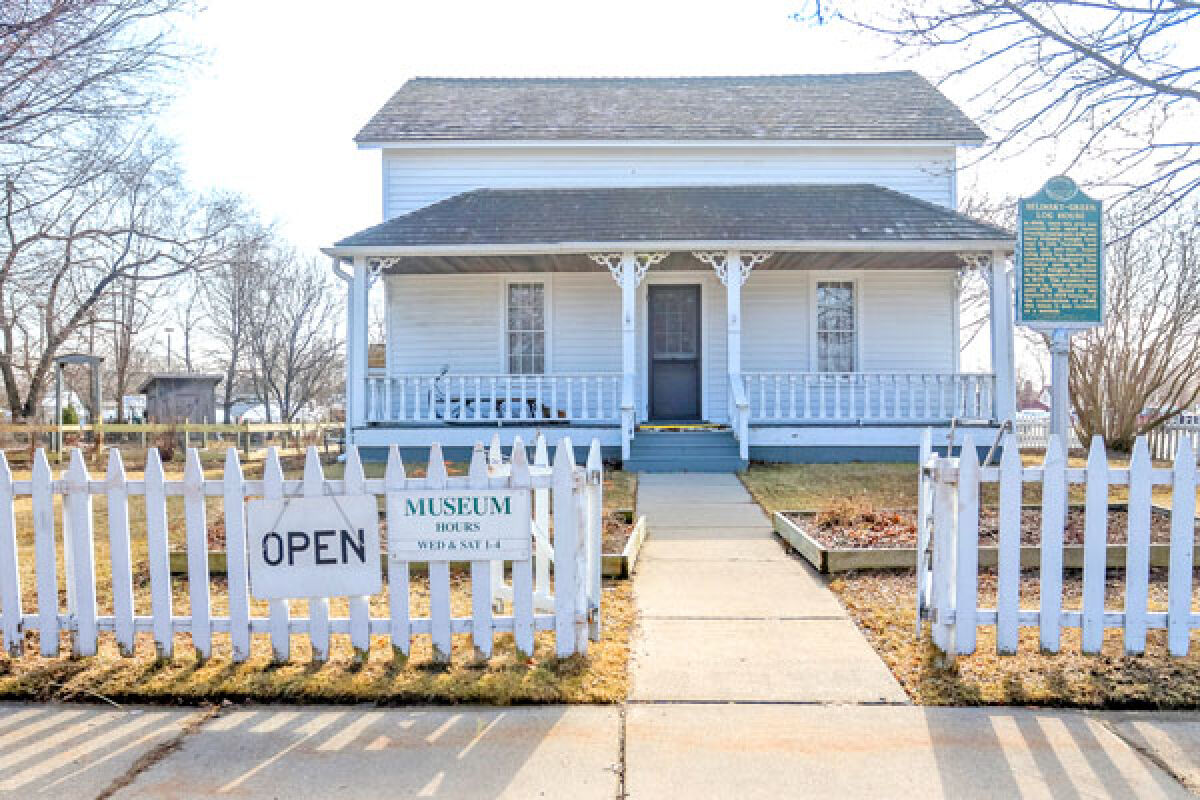ST. CLAIR SHORES — Whether it is through the state of Michigan or the local historical commission, historical designation is a way to preserve where the city of St. Clair Shores came from. For those interested in the past, it is also a chance to dive deeper into the city’s residential and business history.
John Cilluffo, vice chairperson of the St. Clair Shores Historical Commission, said that, before the early 2010s when they started the local designations, the city didn’t do much to recognize historical sites.
“I’ve been on the commission for probably, early 2000s, and we never did anything like that,” Cilluffo said. “We never did have any kind of program or marker program or designation program or anything like that.”
Cilluffo said the city’s historical marker program started between 2008 and 2010.
“Well, we started historical residential markers first, and that was back in 2010, and then we decided to do city markers kind of in the areas, different areas throughout the city that we thought were historic and people should remember,” Cilluffo said. “We’ve done a couple of those.”
Residential markers are oval and have the date when the structure was built, said Kathleen Campbell, treasurer of the St. Clair Shores Historical Commission. Business and city plaques are rectangular and sit on a pedestal outside the site. They usually have a snippet about the history of the establishment or area, along with a couple of pictures.
Cilluffo and Campbell said there is also a difference between how residents and businesses obtain historical plaques. Residents have to do the research themselves by going through census records and other documents to prove the age of their house or structure.
“Now, we can’t do both. We can’t actually verify it and actually do the history, because then it’s really not authentic,” Cilluffo said. “We want the resident to actually do the history, do a little bit of the leg work and then they bring it in, they give us all the information, we look it over as a committee.”
For businesses, the Historical Commission approaches them.
“We go to them and say, ‘We have some history, but do you have more history?’” Campbell said.
Campbell went on to add that most of the businesses, churches or other organizations have photos of when they were first established.
He also said they make efforts to recognize historical places. This includes places that are no longer there, like St. Gertrude’s church, Richard’s Automotive and the location of one of the first ribbon farms in the area.
“We do designate a place (that is) not a building sometimes, but we’re trying to do more now to recognize the buildings that are here and still standing, hence the three 100-year-old churches,” Campbell said. “Three of our churches had their centennials in the last two years.”
Cilluffo said the oldest buildings they’ve recognized come from the 19th century.
“I think those are the two houses right now in the residential program that are older than that, are (dated) in the 1800s and stuff like that,” Cilluffo said.
For its historical designations, the St. Clair Shores Historical Commission does not require residents or business owners to keep things exactly how it was originally, Cilluffo said. He said owners can change what they wish, which is something that may differentiate recognition by the local historical commission from a stated-issued designation.
“And that’s a great point. Sometimes people are like, ‘Well, I really want to change out the door,’ or think about putting vinyl siding (on the building),” Cilluffo said. “That’s fine.”
Campbell said it’s important to preserve history using the historical designations and markers.
“I think with any historic preservation, it’s preserving where you came from,” Campbell said. “It’s wanting to not let that history just go by the wayside because you end up not having anybody that can tell you the stories of how things began.”
According to the state of Michigan’s website, historical designation can be given to buildings, vessels, areas, sites and other places that have local, state or national historical importance. It is the responsibility of the applicant to provide adequate documentation to prove that the area has historical importance.
The St. Clair Shores Historical Commission is looking for new members right now. You can contact them through their email historicalcommission@scsmi.net and find more information about them on the St. Clair Shores Library’s website at www.scslibrary.org.
 Publication select ▼
Publication select ▼



























